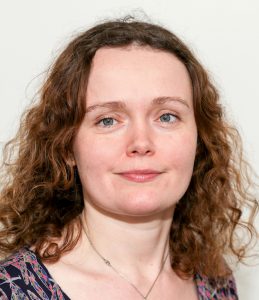
The three weeks I spent in Bristol were brilliant and beautiful. When asked about it, I keep saying – it was so freeing. Freeing of the mind and spirit; to exist for a period of time without either a written or mental to do list, or any feelings of guilt or worry about the things that were still on it. Someone else (the lovely Pete and Jo) had worked out what I was doing all day, and all I had to do was be there and participate. It was a wonderful luxury and great privilege.
I came back to normal life with a treasure chest of gems of wisdom and ideas to draw on, an enormous boost in confidence, and a determination to do and be more.
So, the treasure chest – I think my colleagues might be getting a bit fed up of me starting every sentence with ‘when I was in Bristol, we had a presentation from such and such, and they said this amazing thing…’. You can go to a conference for a couple of days, sit and listen to presentations, and think, oh yes, this is all great, must write it down, very useful. Then the minute you get back, it all flies out of the window. Well, that hasn’t happened. The time and space made it all sink in, and it’s making me think differently.
So, just this week
- when planning our Midsummer Party for 2018 and talking with my boss about our National Engagement work, rule 3 of the new rules of public art popped into my head (shared by Claire Doherty of Arnolfini/Situations) – ‘don’t make it for a community. Create a community’.
- I’ve been talking to colleagues in Marketing and Communications about a digital open day we’re planning for 2018 and thinking about Matt Locke’s patchwork-quilt approach to building audiences online – and a new call to action – not ‘come and do this’, but ‘come and do this with your mates’.
- I’ve been reviewing our department’s section of the Access Plan and thinking about we overcome historical and individual barriers to accessing the RSC and our work – alongside barriers created by the work itself and our environment that we’re more accustomed to considering – as explained to us by Jo Verrent from Unlimited.
Confidence. I set out to Bristol with excitement but with nervousness and reservations. Excitement about embarking on a new experience and what I could learn from everyone else. Nervousness about whether they might all think I was a bit crazy when I did my presentation whilst getting them to play a game of Nine Men’s Morris. Reservations that mainly centred around a fear I didn’t belong on this list of amazing people – imposter syndrome looming large. Reservations too that I am really quite an analogue person, and a bit scared of digital technology! On day 1, walking up the stairs in the Watershed, I had a brief moment of feeling like I was on The Apprentice.
But none of that lasted for very long. The process of being shown around and welcomed to the studio, working through our rules of engagement for the lab, chatting to people over lunch and dinner– made me realise that we were all thinking and feeling similarly. That despite the huge variety and diversity in our backgrounds and experiences, we also had plenty in common. Everyone was listening, affirming with jazz hands, but also asking good questions back. I felt encouraged to be myself, which is sometimes a bit difficult when you work in a big organisation – and realised I could be open and make a valid contribution to the group. By the beginning of week 3 I was leading the group in a morning warm up, teaching them to do strip the willow! And by the time we got to our farewell dinner, I was proudly announcing that I had shaken off the imposter syndrome entirely.
Throughout the lab there was this sense of excitement from our hosts about us being with them, without that resulting in any pressure for us to ‘perform’. The generosity and collaborative energy of the studios was tangible in that everyone we met seemed to share that. I was blown away by Graham Leicester of the International Futures Forum, telling us, over one lunchtime when he had popped in, that he thinks the skills and competencies of cultural producers are what is needed in lots of other sectors in the 21st century, like health and education. But reading his paper about the Watershed, Producing the Future, it all makes a lot of sense.
The determination. I’ve come back wanting my work and projects to have more impact. I’ve come back wanting to make a change. I had a colleague in a previous job, who, at times of stress and deadlines, would say ‘at the end of the day Louisa, it’s just entertainment.’ She was trying to make us all feel better, but the work we do in this sector, is not just about that. It is about encouraging and enabling people to see and experience their world in a different way. The value of that, in the world we live in, is immeasurable.
Whilst I was in Bristol I wrote a weekly reflection and update for my colleagues back at the RSC. At the end of week 1 my update included this statement:
‘I already think about this a lot, but being here has also made me think even more about the immense privilege we have, to work in the environment we do and with the resources we have. It’s made me more determined to develop projects that work harder to share this privilege with more people.’
I don’t intend for this to sound patronising or like altruism. I just want to do something amazing with those resources. I want to see the outcomes as well as the outputs.
In week 3, I had a one-to-one surgery with Watershed producer Zahra Ash-Harper whose role is about developing the cultural diversity of the studio residents and their practice. I wanted to talk to Zahra because this is such a priority for the RSC, alongside growing more culturally diverse audiences. I mentioned the conversation in my update and said:
‘For me it was an emotionally charged conversation. What I took away is that the starting point for making long term, sustainable change is not to look outwardly – to go and find a community and bring them in – but to look inwardly – at ourselves. Why are we doing this? If it’s just to tick a box for a funder, or to legitimise our subsidy from the tax payer, that’s the wrong answer. If it’s because we want to share what we have, to invite people to be part of the conversation, to bring themselves and their experiences and their artistry and ideas to that conversation, for those contributions to be valued, to be important, to share our stages and spaces, to put steps in place to counteract the realities of privilege – then that’s getting there. ‘
This stuff is not about a toolkit or a set of skills – it’s about why I started working in the cultural sector in the first place. It will sound like a cliché, but I’ve rediscovered myself.
